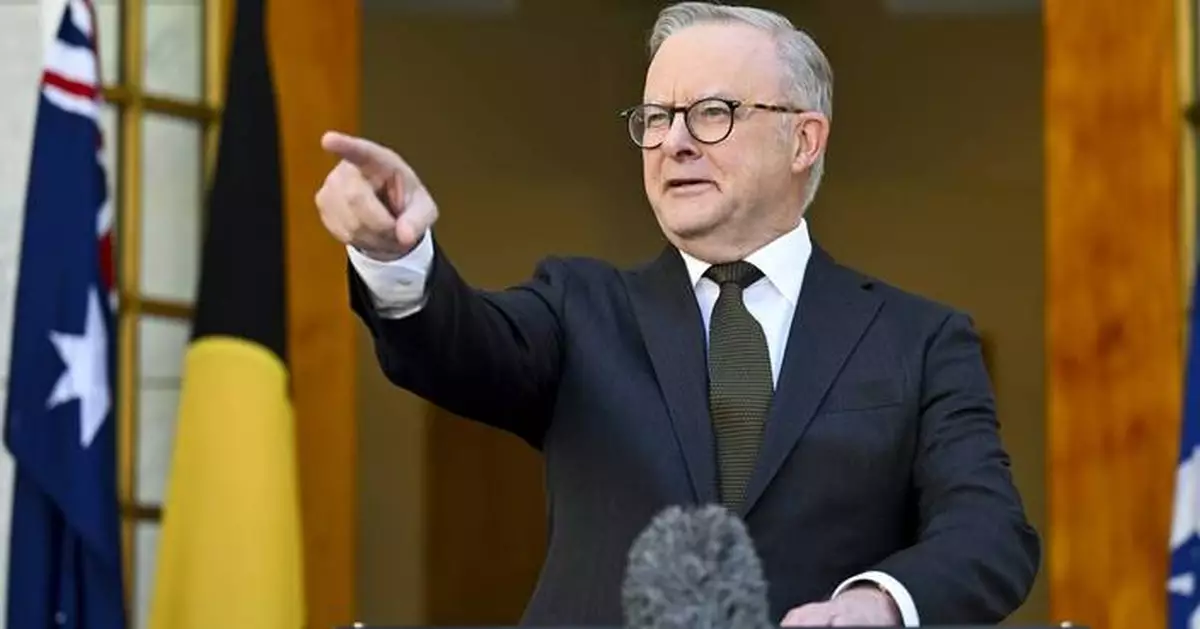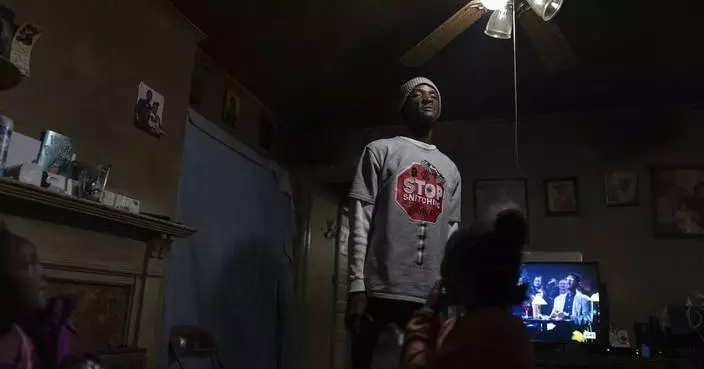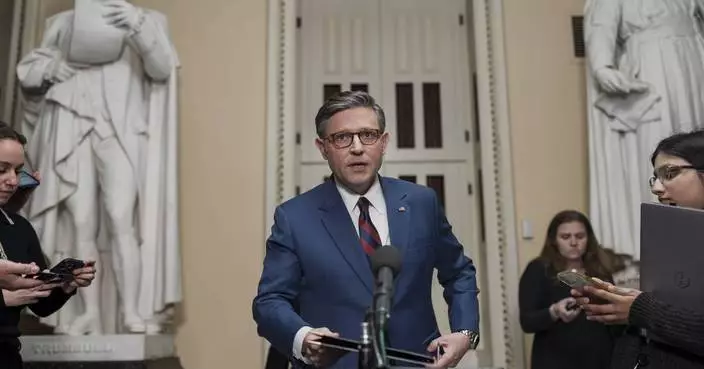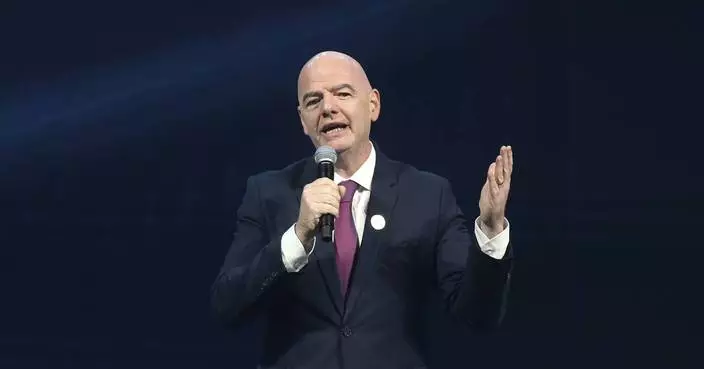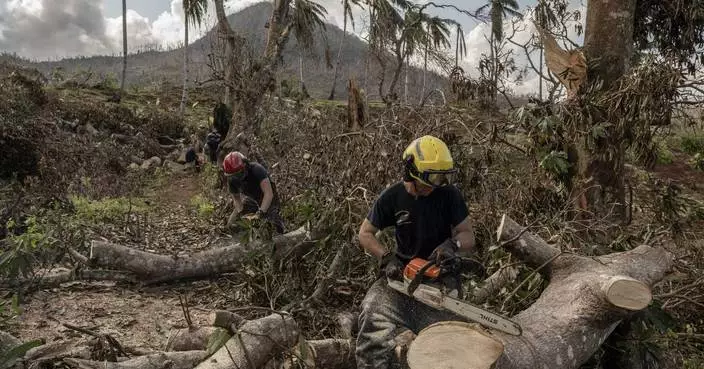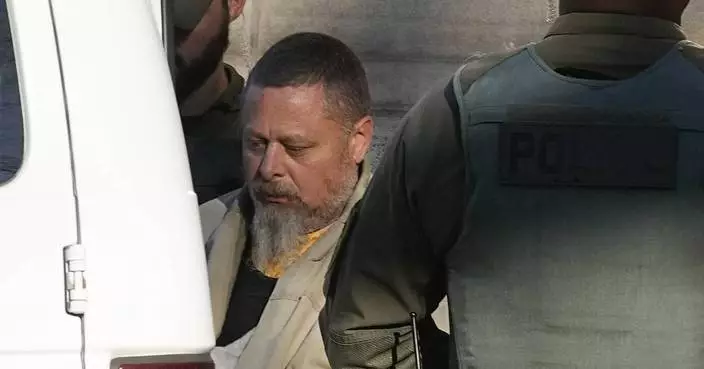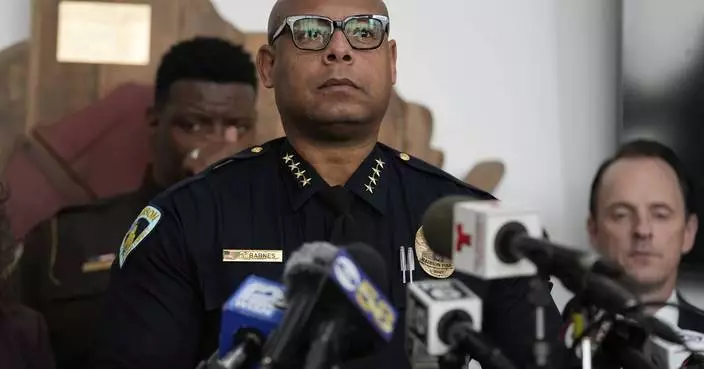MELBOURNE, Australia (AP) — Australia announced on Friday it will pay for more police in Solomon Islands and create a police training center in the South Pacific island nation’s capital Honiara, where Chinese law enforcement instructors are already based under a bilateral security pact with Beijing.
Prime Minister Anthony Albanese said Australia would spend 190 million Australian dollars ($118 million) over four years on funding and training new Royal Solomon Islands Police Force recruits with a package that would “reduce any need for outside support.”
“My government is proud to make a significant investment in the police force of the Solomon Islands to ensure that they can continue to take primary responsibility for security in the Solomons,” Albanese told reporters in Australia's capital Canberra.
Albanese and his Solomons counterpart Jeremiah Manele said in a joint statement on Friday the package would build an enduring security capability in the Solomons, “thereby reducing its reliance on external partners over time.”
Australia has been energetically pursuing new bilateral security deals with its Pacific island neighbors since Beijing and the Solomons signed a security deal in 2022 under Manele’s predecessor, Manasseh Sogavare.
That deal has created fears among U.S. allies including Australia that the Chinese navy will be allowed to build a base in the strategically important Solomons.
Albanese’s Labor Party, which was the opposition at the time the pact was signed, described it as Australia’s worst foreign policy failure in the Pacific since World War II.
Australia has recently signed security deals with Papua New Guinea, Tuvalu and Nauru that effectively give Canberra veto powers over any security deals those countries might want to strike with third nations including China.
Asked if the new deal would require the Chinese security presence to be removed from the Solomons, Albanese did not directly answer.
“The Solomon Islands of course is a sovereign nation. They have some measures in place and we expect that to continue,” Albanese said.
“As a result of this agreement, what we’ve done is make sure that Australia remains the security partner of choice,” he added.
Mihai Sora, a Pacific islands expert at the Lowy Institute, a Sydney-based international policy think tank, said the agreement was a “clear win for Solomon Islands, which has gained a much-needed boost to its law and justice sector.”
“But Solomon Islands has not committed to scaling back the essentially permanent rotating presence of around 14 Chinese police trainers in the country, who have been running their own parallel training program with Solomon Islands police since 2022,” Sora said in an email.
“So, the agreement falls short of a solid strategic commitment to Australia from Solomon Islands, and there’s no indication that it would derail China-Solomon Islands security ties,” Sora added.
Blake Johnson, an analyst at the Australian Security Policy Institute, a Canberra-based think tank, said Chinese policing in the Pacific gives Beijing tools to control Chinese expatriates and pursue other goals.
“They can be very heavy-handed in their response sometimes. There are also concerns around data and privacy risks associated with Chinese police in the region,” Johnson said.
“Sometimes they’re providing surveillance equipment. There are concerns about what that is being used for and what it’s capturing,” he added.
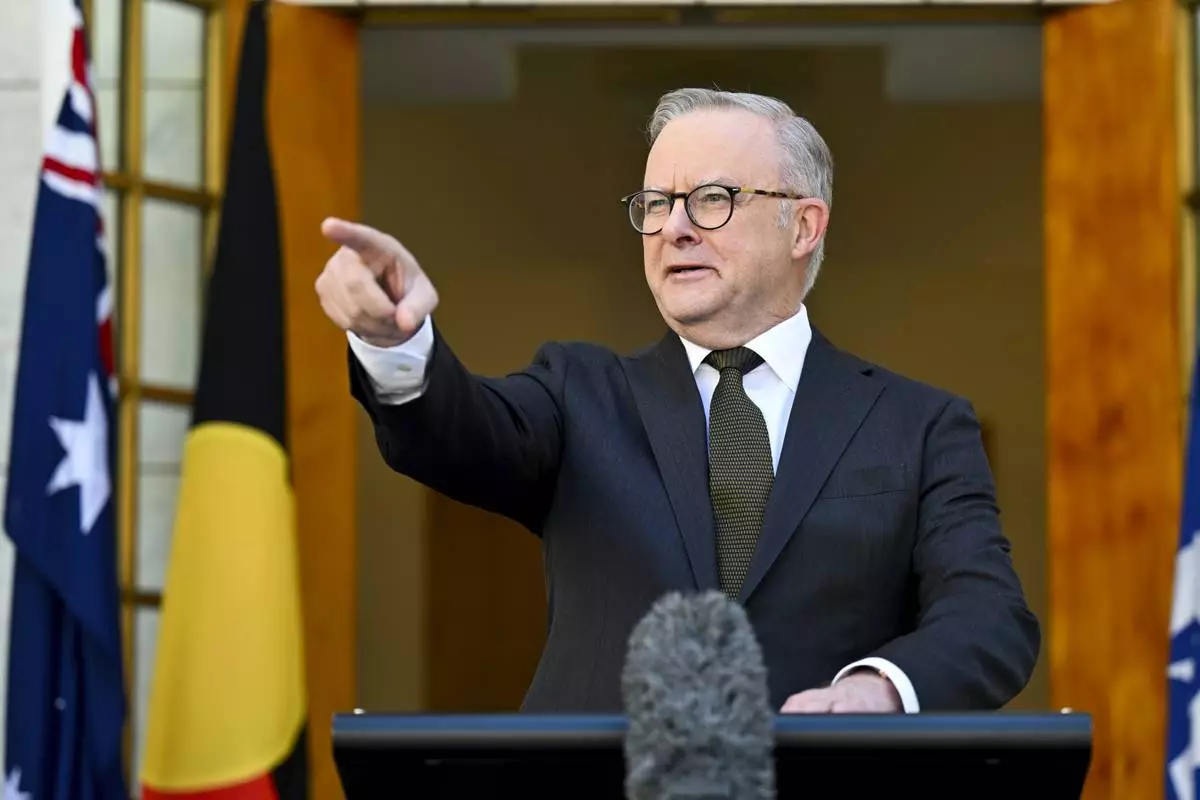
Australian Prime Minister Anthony Albanese gestures during a press conference at Parliament House in Canberra, Friday, Dec. 20, 2024. (Lukas Coch/AAP Image via AP)
RIO DE JANEIRO (AP) — It’s perhaps Rio de Janeiro’s hardest trail, featuring one particularly daunting section requiring a perilous scramble that can cause hikers to freeze up with fright.
But this week, Ezequiel da Luz, a 40-year-old paraplegic, traversed jungle and surmounted rocks to reach Pedra da Gavea’s peak that towers over the Atlantic Ocean.
Da Luz had been waiting since 2021, and traveled more than 1,000 kilometers (about 620 miles) by bus from southern Brazil when his chance arrived to ascend with the assistance of an organization called the Inclusion Collective. Its volunteers on Dec. 18 surrounded and shouldered the weight of a specialized wheelchair, set inside a metal frame as they helped da Luz upward.
“What logistics!” da Luz exclaimed as their tightly packed throng helped him weave through one narrow stretch at the start of the trail.
Inclusion Collective started three years ago and has completed more than 50 hikes, 12 of which to Pedra da Gavea, plus others on less challenging trails, according to Bruna Souza, the group’s administrator. In da Luz's home city of Balneario Camboriu, he is a jiu-jitsu fighter and has competed internationally.
“We can show that if we have the will, inclusion can happen anywhere, not just where there’s a ramp,” she told The Associated Press along the trail. “It’s not just shopping centers you can go to; you can go to other places. It can be fun for everyone.”
Volunteers on Wednesday were mostly trail and climbing guides already familiar with the route. They were joined by hikers who encouraged da Luz during his eight-hour ascent, with 800 meters (2,600 feet) of elevation gain. At the infamously hair-raising section, called Carrasqueira, volunteers used a system of ropes to hoist his chair.
“I’ve never seen anything like this in terms of accessibility, people helping,” said Adriele Neves, a 29-year-old hiker. “It’s beautiful work.”
With Carrasqueira conquered, it was straight on to the summit. As da Luz wheeled himself forward, waving a Brazilian flag in the air, volunteers and other hikers already atop the mountain erupted in applause.
“I didn’t know it had so many challenges, and so many obstacles,” he told the AP atop the mountain. “Today, to be up here on Pedra da Gavea, together with this group that promotes inclusion, is the fulfilment of a dream.”
Alas, the peak was shrouded in clouds, leaving Rio de Janeiro’s Ipanema beach and iconic Two Brothers Hill hidden away. It seemed da Luz wouldn’t get to enjoy Pedra da Gavea’s majestic view.
But within mere minutes, the clouds parted and some sunlight filtered down from the heavens, maybe just for him.
“Even in this, God was generous,” da Luz said. “Look there, what an incredible view. What a marvelous vision!”
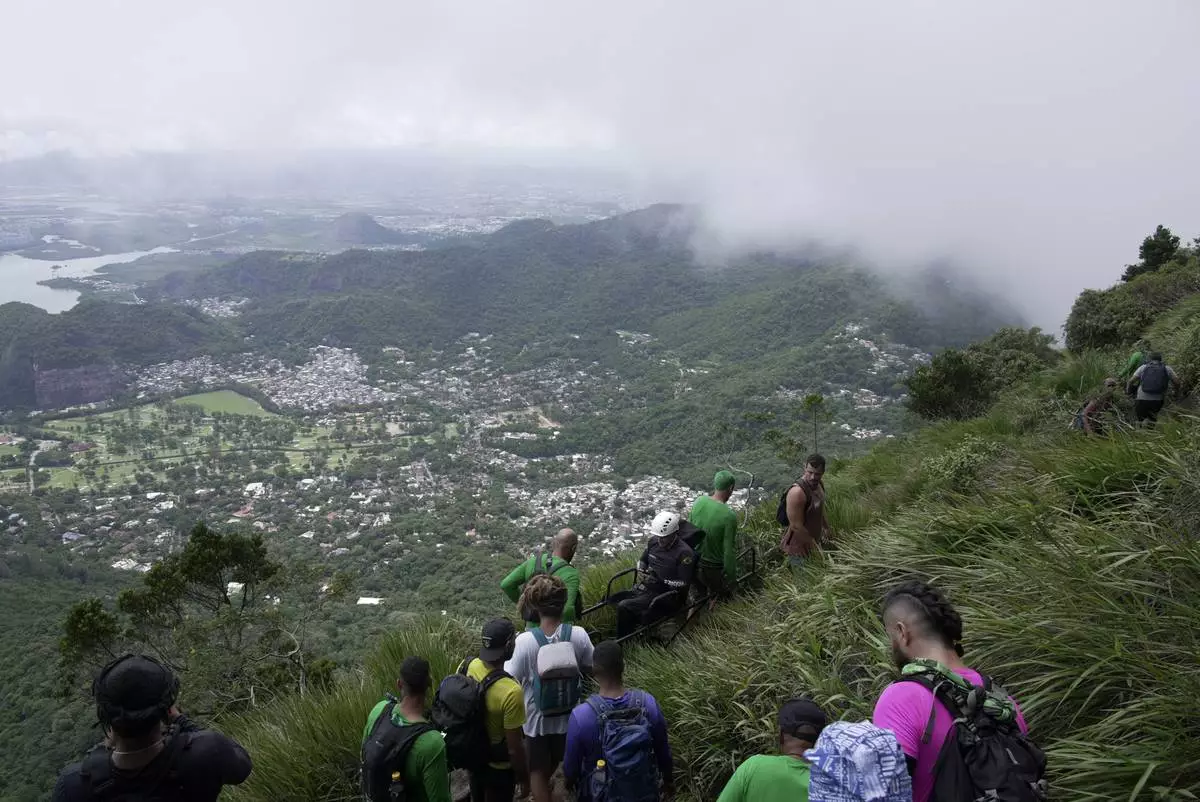
Volunteers with an organization that aims to increase accessibility in trails walk an inclusive route up Pedra da Gavea in Rio de Janeiro, Wednesday, Dec. 18, 2024. (AP Photo/Lucas Dumphreys)
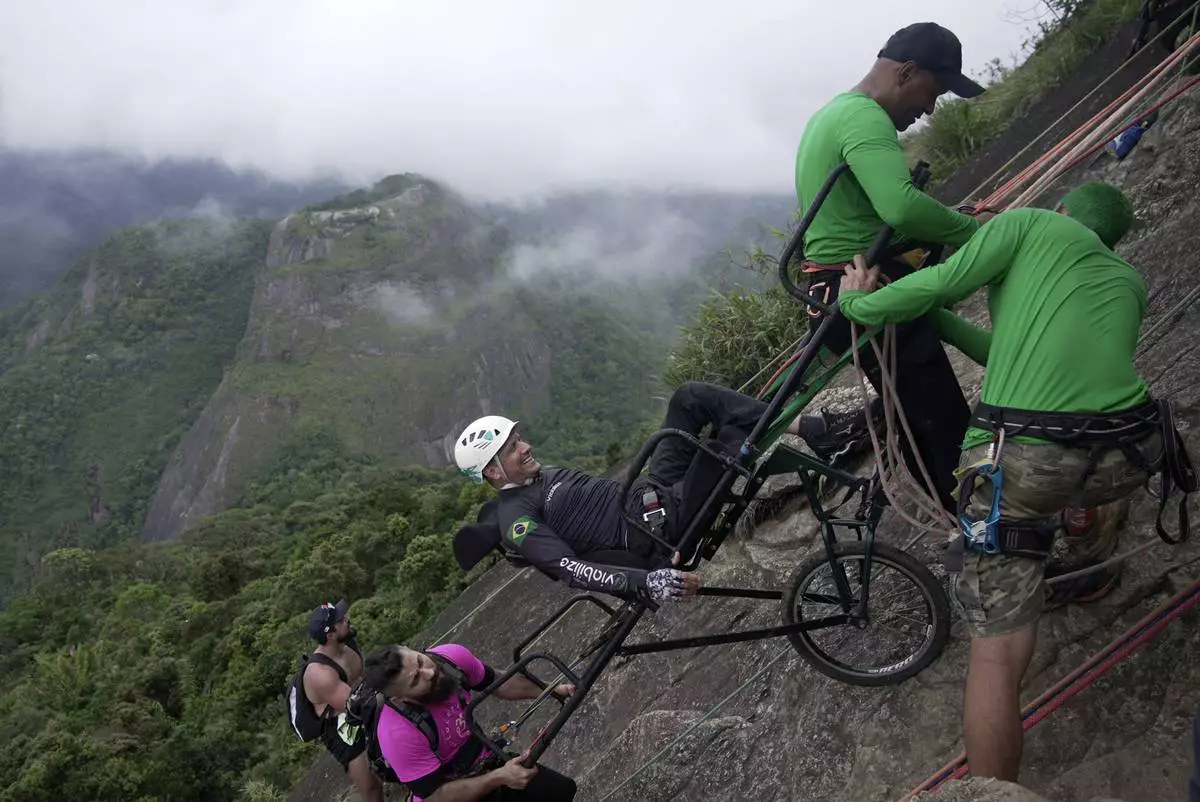
Ezequiel da Luz, a para-athlete with an amputated leg and no movement in his lower limbs, smiles in a wheelchair as he is taken on an inclusive route at Pedra da Gavea, with an organization that aims to increase accessibility in trails, in Rio de Janeiro, Wednesday, Dec. 18, 2024. (AP Photo/Lucas Dumphreys)
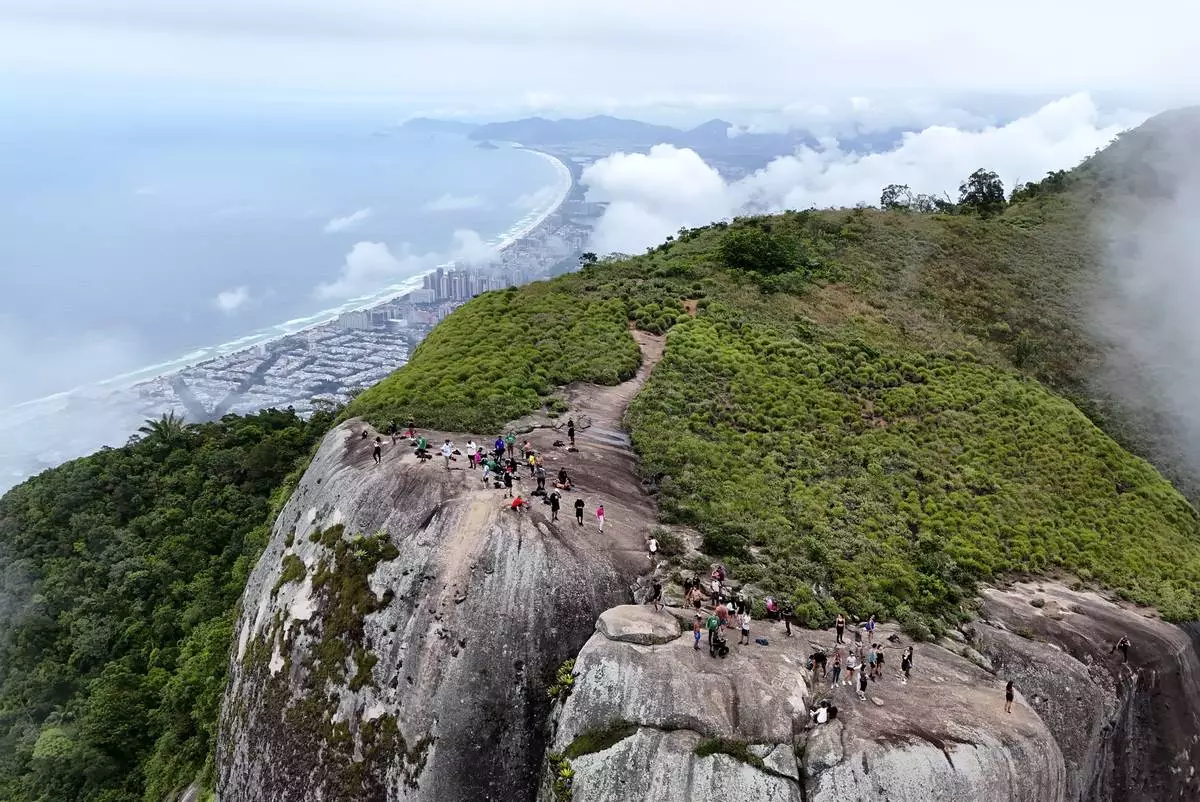
Volunteers reach the top of Pedra da Gavea, during a project to increase accessibility in trails in Rio de Janeiro, Wednesday, Dec. 18, 2024. (AP Photo/Lucas Dumphreys)
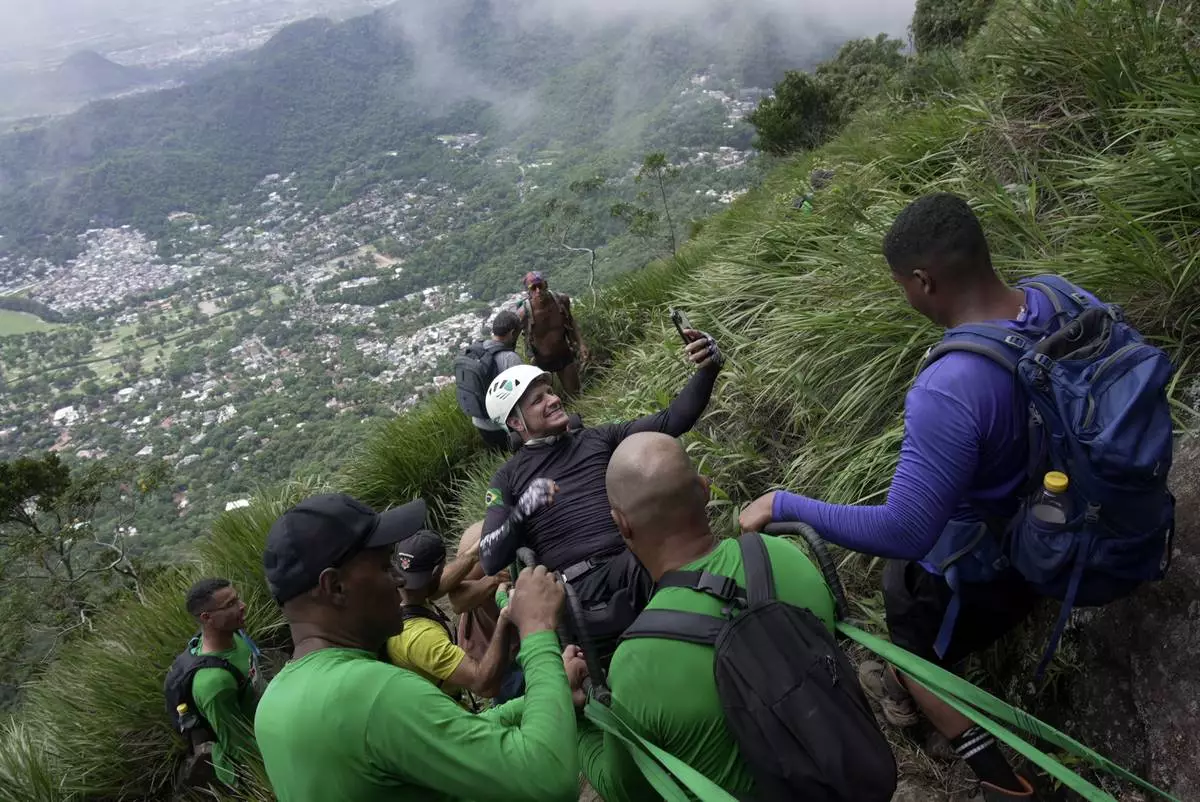
Ezequiel da Luz, a para-athlete with an amputated leg and no movement in his lower limbs, takes a selfie in a wheelchair as he is taken on an inclusive route up Pedra da Gavea with an organization that aims to increase accessibility in trails, in Rio de Janeiro, Wednesday, Dec. 18, 2024. (AP Photo/Lucas Dumphreys)
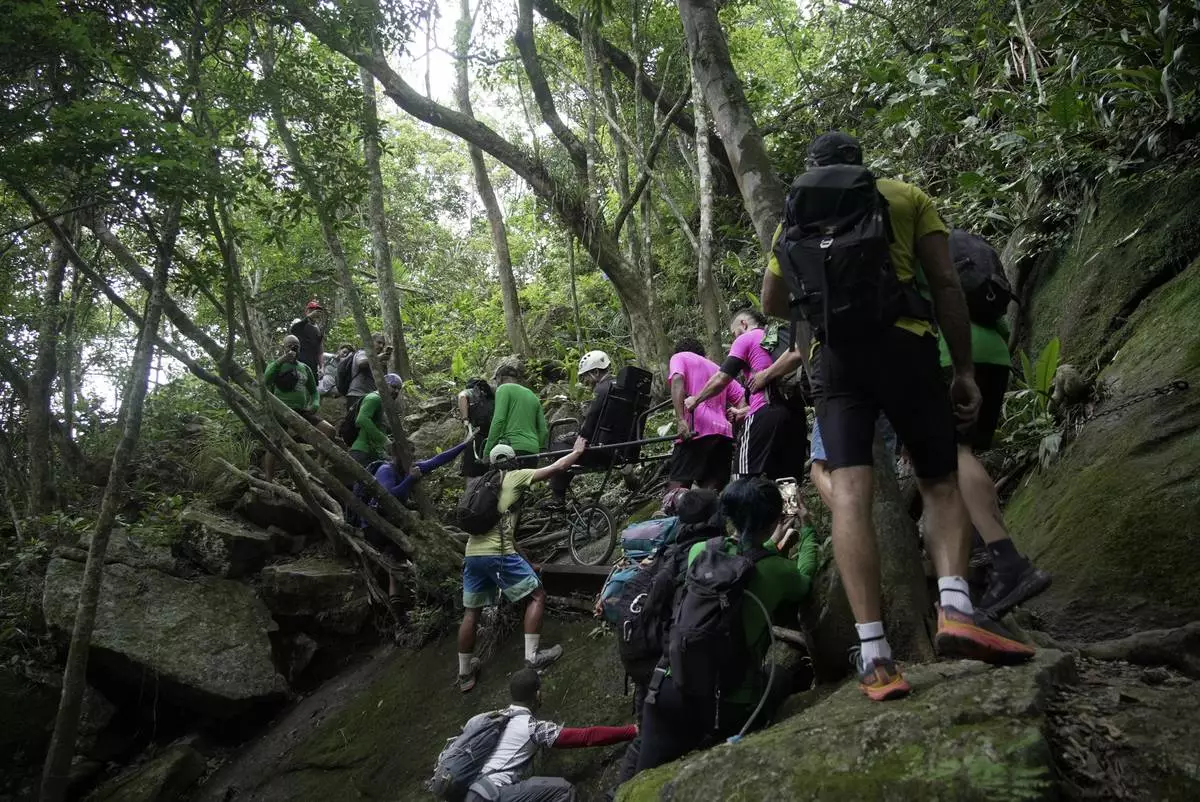
Volunteers with an organization that aims to increase accessibility in trails begin an inclusive walk up Pedra da Gavea, in Rio de Janeiro, Wednesday, Dec. 18, 2024. (AP Photo/Lucas Dumphreys)
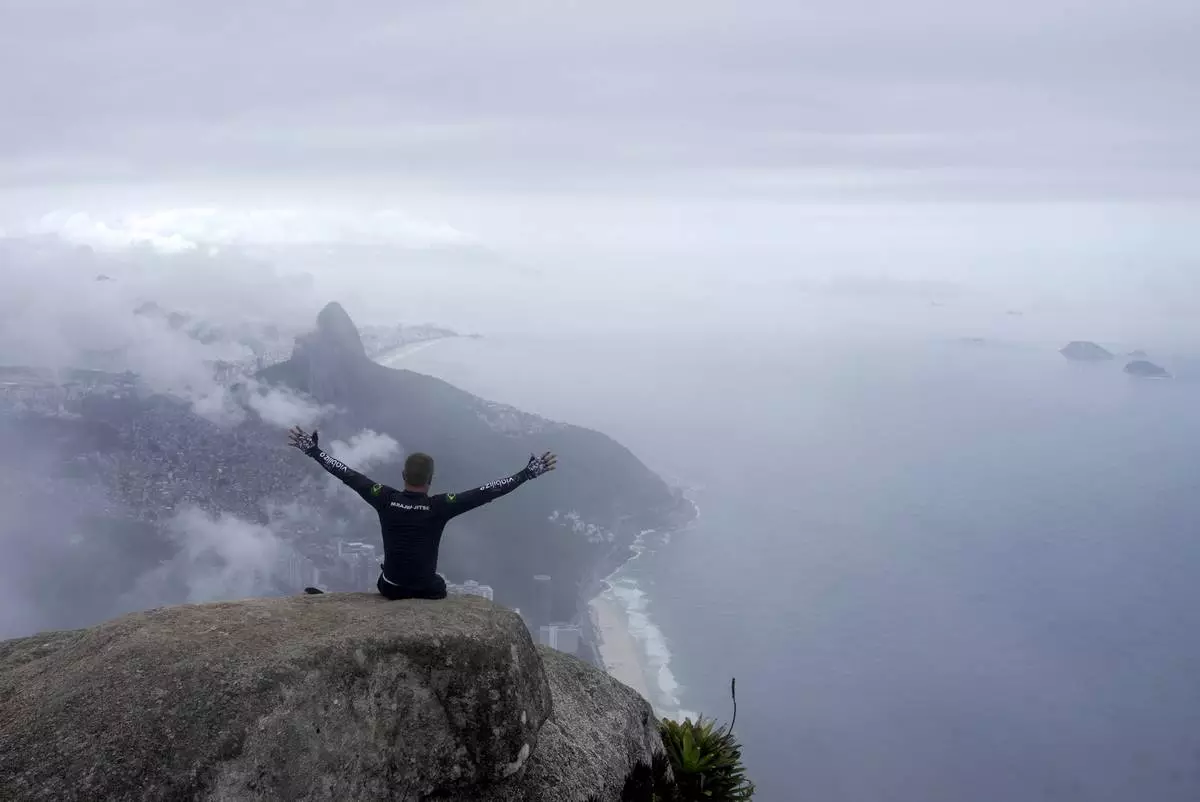
Ezequiel da Luz, a para-athlete with an amputated leg and no movement in his lower limbs, celebrates reaching the top of Pedra da Gavea, with an organization that aims to increase accessibility in trails, in Rio de Janeiro, Wednesday, Dec. 18, 2024. (AP Photo/Lucas Dumphreys)



